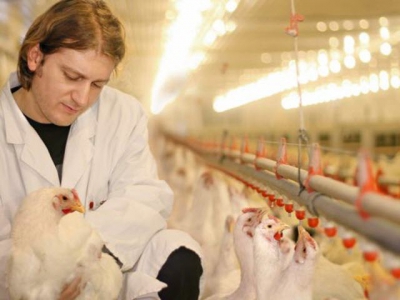Poultry, egg conference covers animal welfare, sustainability trends

Farmers, integrators, processors, allied industry, brands, retail, foodservice, nonprofits and civil society gather to discuss animal welfare and sustainability issues.
What do consumers want when it comes to animal welfare? How you ask the question and who answers the question matters, Dr. Candace Croney, director of the Purdue University Center for Animal Welfare Science, said during her keynote address at the first joint annual meeting of the U.S. Roundtable for Sustainable Poultry & Eggs (US-RSPE) and the International Poultry Welfare Alliance (IPWA) in Atlanta, Ga.
As part of her presentation on “Community (Multi-Stakeholder) Perceptions & Attitudes about Animal Welfare & Sustainable Agriculture,” Croney covered a variety of areas, such as addressing consumers' worries about animal welfare, consumer challenges, sources of animal welfare information and how to lead on animal welfare and sustainability. She concluded her keynote by stating, “To gain credibility and trust, be explicit about care, compassion and animals, … not efficiencies, benefits to farmers, etc.”
The conference began with US-RSPE/IPWA executive director Ryan Bennett discussing the joint structure for the two groups and how they will work together domestically and internationally.
Molly Parker, director of food safety and animal care for Butterball and board member of IPWA, provided information on IPWA’s structure and goals, which include helping shape the global discussion for poultry welfare, committing to advancing poultry welfare outcomes through the poultry and egg value chain, increasing both knowledge and understanding of animal welfare and inspiring improvements via innovation, science and production systems that will result in better outcomes for poultry, the poultry value chain, the environment and consumers.
US-RSPE chair Leigh Ann Johnston, director of sustainable food strategy for Tyson Foods, provided an overview of US-RSPE’s vision, mission and focus areas, as well as key accomplishments that include the development of a three-year strategic plan and the formation of membership, recruitment and framework committees. Johnston noted that “the focus areas are interconnected and material to stakeholders and include being environmentally sound, socially responsible and economically viable.”
Each group held breakout sessions that addressed topics such as innovation in animal welfare, the evolution of animal welfare decisions and understanding, how to work with external stakeholders and receive internal buy-in to drive change within your company and sustainability reporting trends.
Moderated by Chad Gregory, president of the United Egg Producers, the conference ended with a joint egg and poultry supply chain commitment and panel discussion.
A large number of participants representing all aspects of IPWA/US-RSPE membership were in attendance, including farmers, integrators, processors, allied industry, brands, retail, foodservice, non-government organizations and civil society.
Related news
 From cloth to feed, cotton may have a new role for fish and poultry
From cloth to feed, cotton may have a new role for fish and poultry Work focused on removing a toxic element in cottonseed, coupled with US regulatory approval, may expand the use of that ingredient beyond cattle diets to feed
 New poultry learning center showcases animal care
New poultry learning center showcases animal care Center includes large viewing room that allows guests to observe birds undisturbed in their environment.
 Organic manganese additives may improve shell strength, layer performance
Organic manganese additives may improve shell strength, layer performance Laying hens may display improved production and stronger eggs when levels of amino acid-complexed manganese are added to feeds, say researchers.